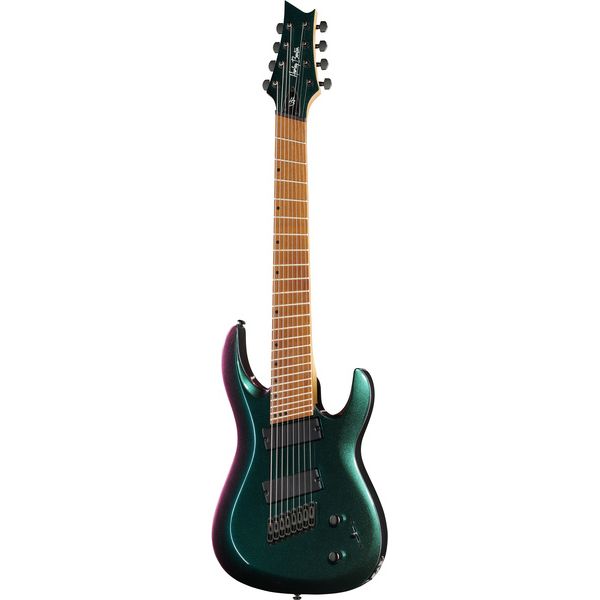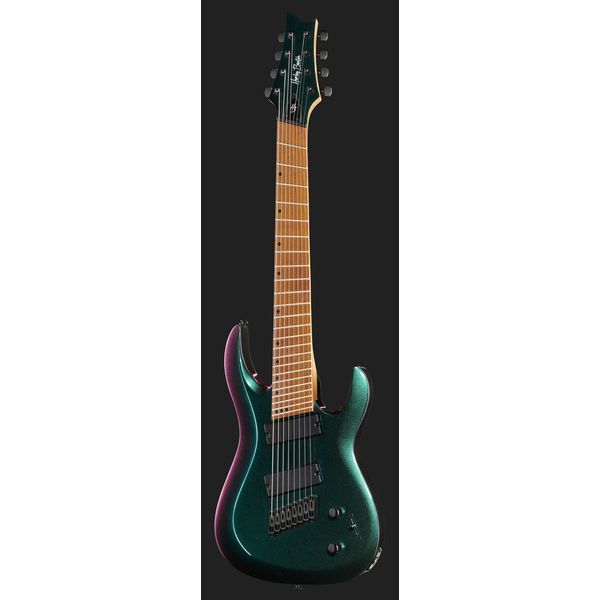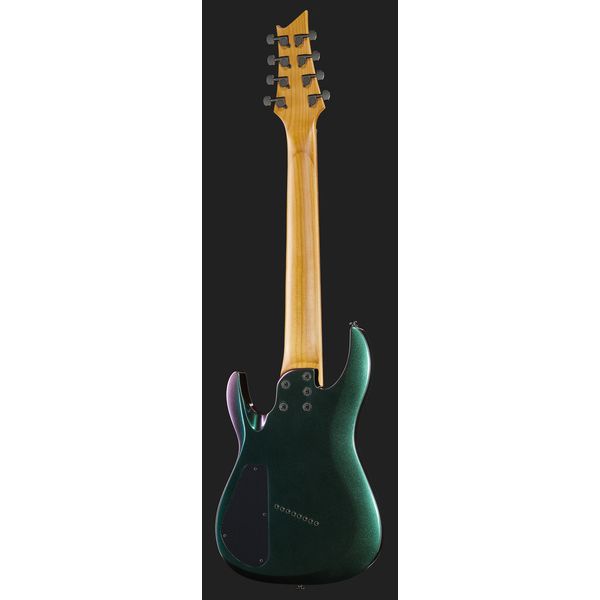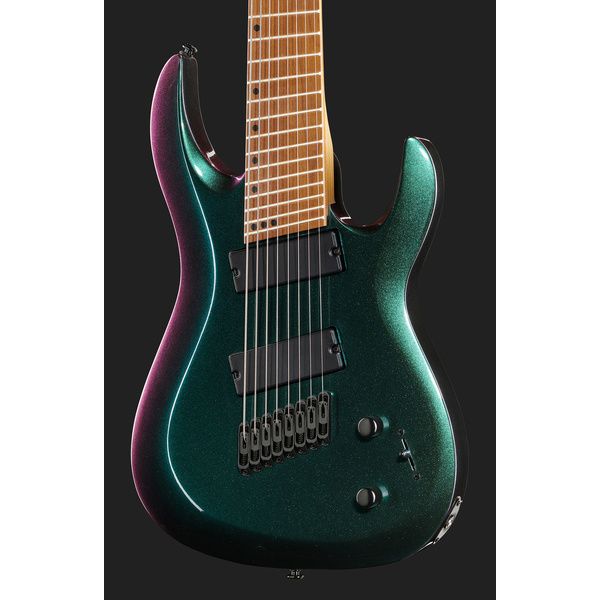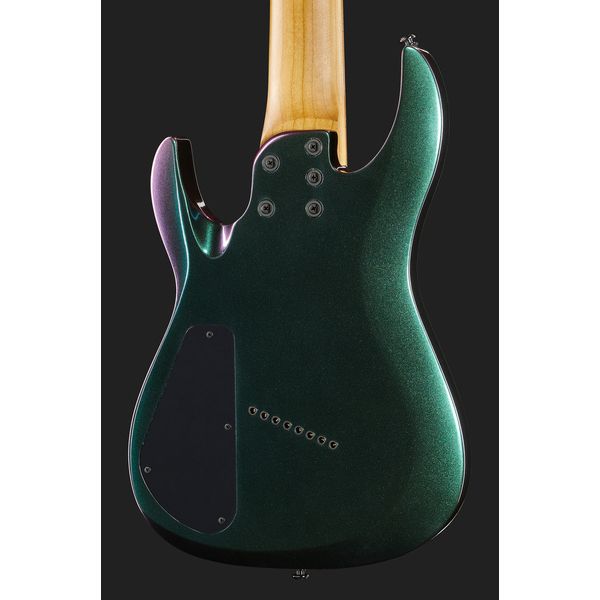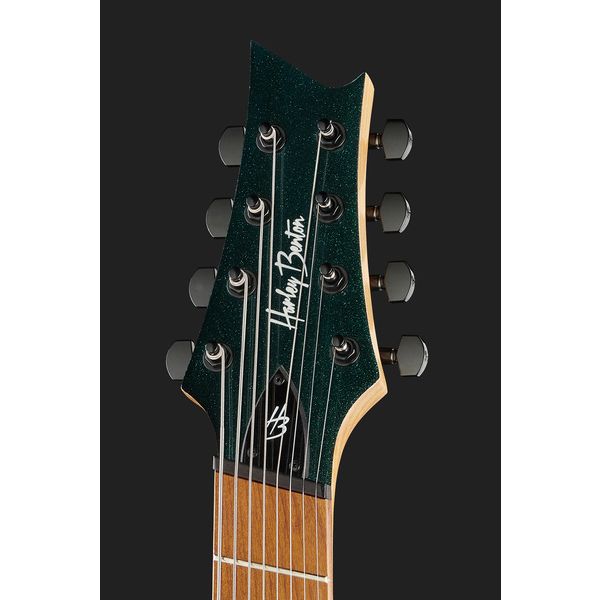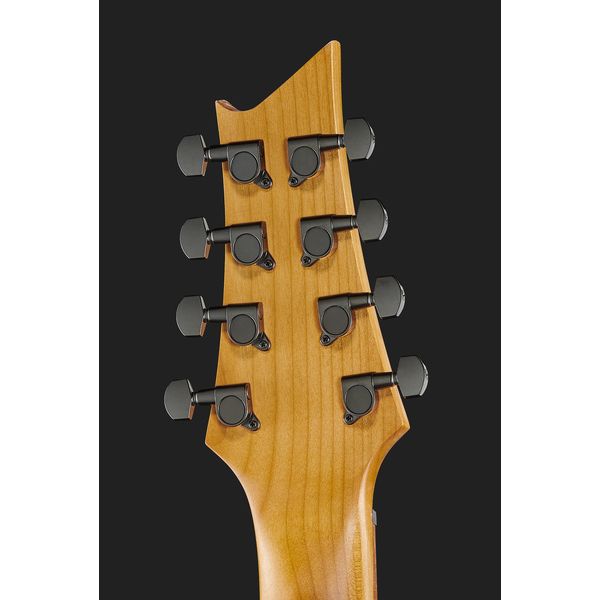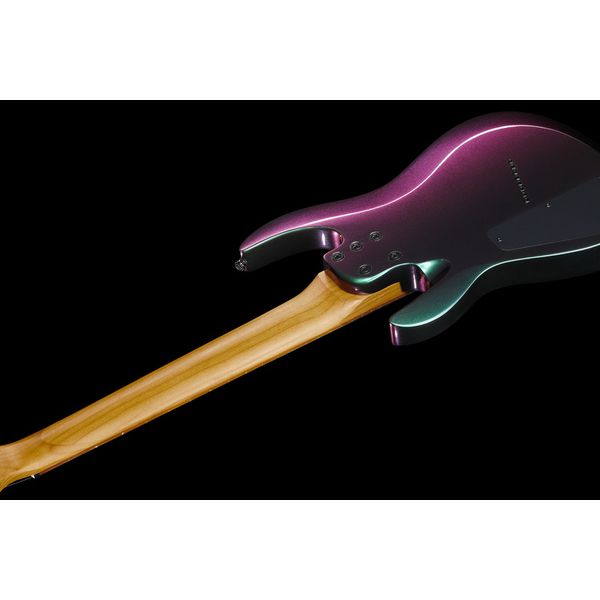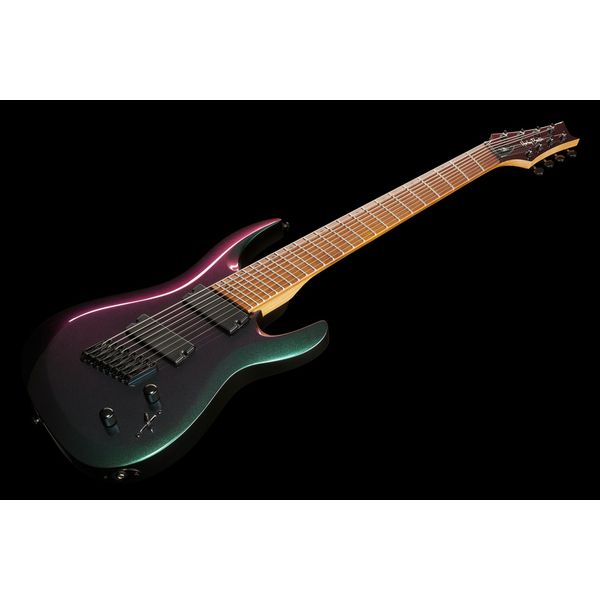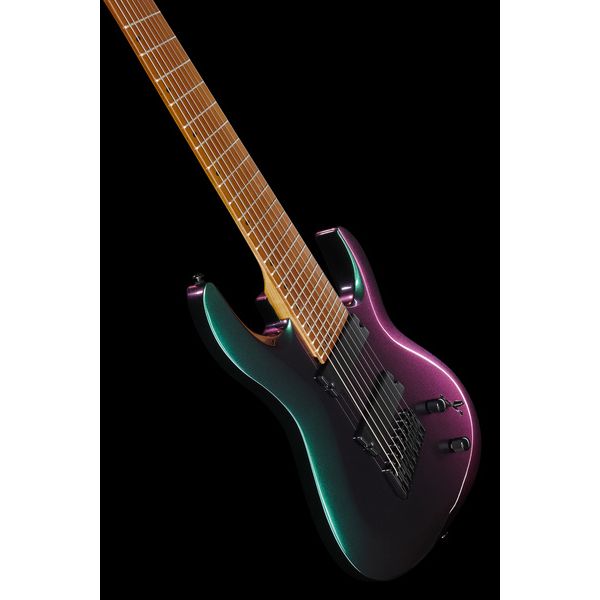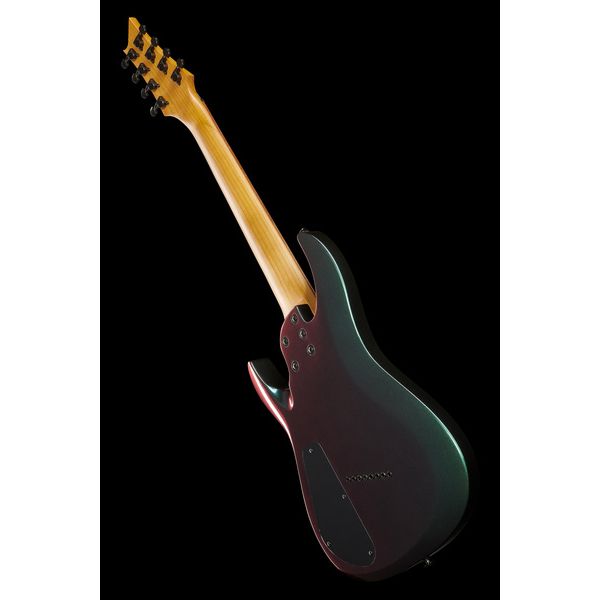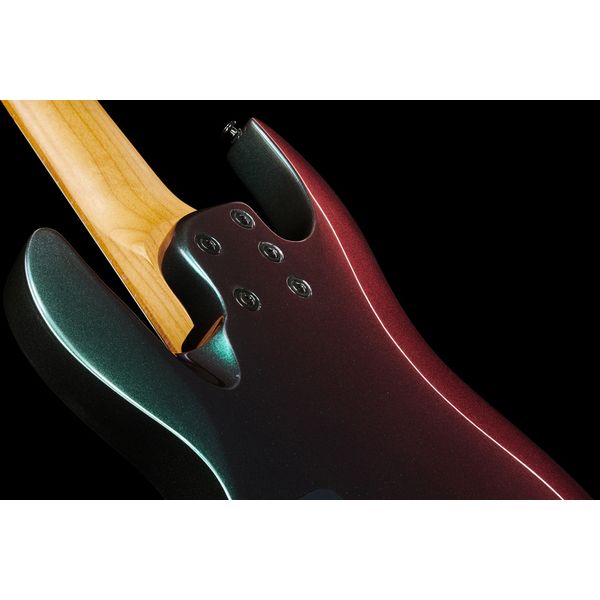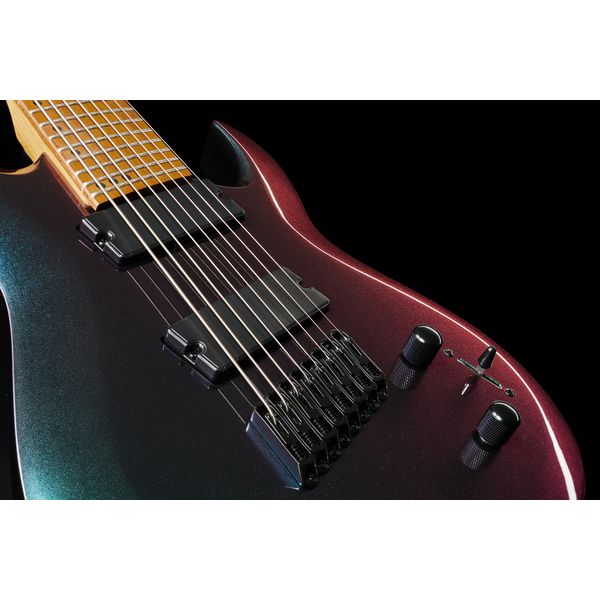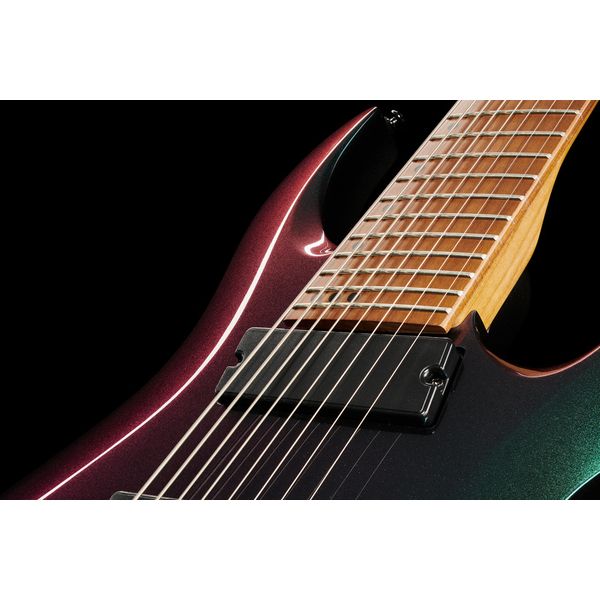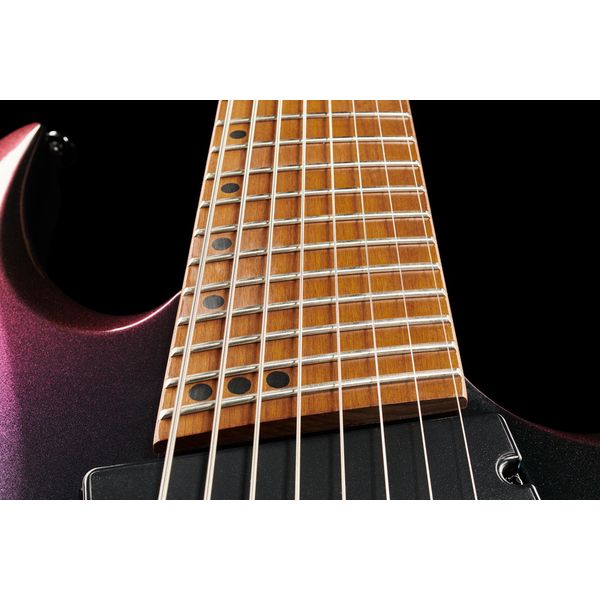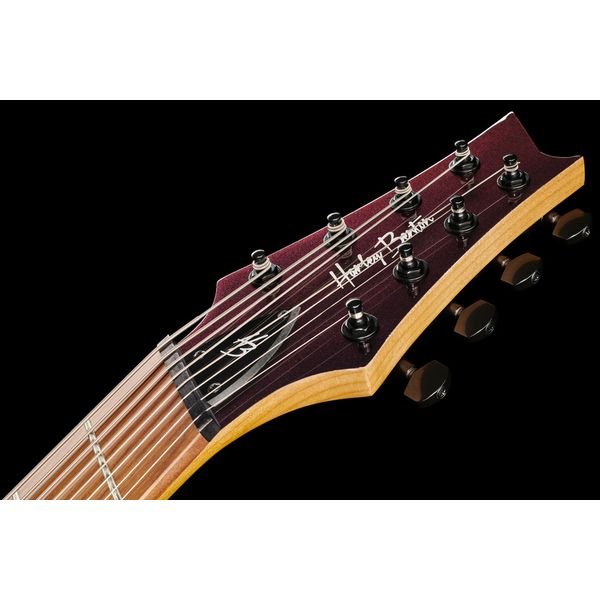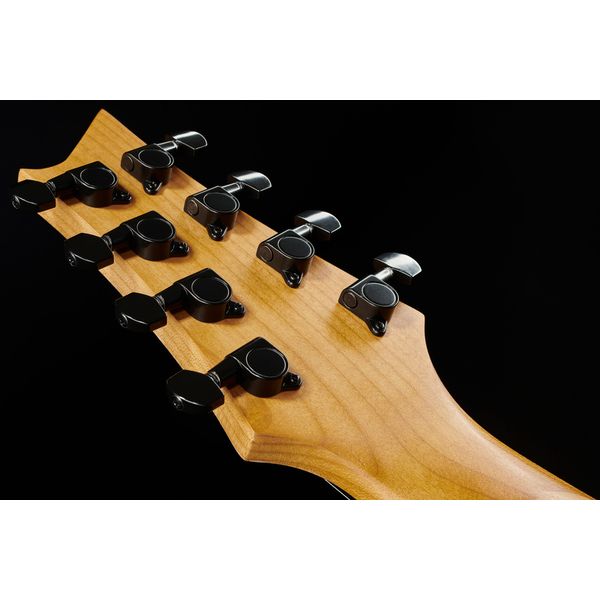The short of it is:
I bought this instrument with the intent of using it in high A configuration a la Rusty Cooley / Daddo Oreskovich. And after following the steps laid out by Daddo (including using 7s for the high A, and tuning very very slowly), as well as some minor intonation adjustments, it worked flawlessly, and sounds fantastic.
The finish is incredibly beautiful. I had not really been that interested in the aesthetics (I initially was more interested in the designs of the lower budget offers) but I chose it because I read that this guitar had Harley Bentons best neck ever. I will say two things, it's absolutely gorgeous - I ended up loving the paint job, and am really glad to have a different looking guitar. And the second is that while I don't know other Harley Benton's (something I hope to correct in the future) its neck is just as comfortable as my Ibanez RG ... and that has been the single most comfortable electric guitar neck I've used ... Until now.
The instrument comes perfectly balanced for a wide range of styles. Which is to say some people might want heavier strings, others might want to attempt using alternate tunings (which is an open area of exploration), and still others may wish to use it as is. And it should accommodate most players, but because of this, it will not be optimized for any particular style. Pickup height (or if you really want to, replacement), string changes, intonation, perhaps tuner changes are all dependent on playing style - and you should do that after having spent some time with it in its factory configuration so you know where you want to go with it.
I personally have been a bedroom guitarist for over 20 years, took some classical and jazz guitar lessons. I had played 12 string, 4 string bass, classical guitar, steel string, electrics, ukes, but never a 7 string or 8 string. When this guitar arrived, I expected it to take me a bit of time before I adjusted. And it has, not so much due to the scale length (wider than a regular guitar but shorted than a bass) but rather because of the width of the neck which greater than my 12 string acoustic (12 strings come with 6 double sets of strings).
I never really warmed up to the low F# string, but then again I bought the guitar with the intention of using a high A setup, so I don't think this is really an issue - I had already made up my mind of getting rid of it rather than explore it further. After some weeks of using it, I find myself more and more comfortable. You don't need to go through a 7 string, rather just have a clear goal in mind for the instrument and be willing to go through a transition period where it will be uncomfortable. This is a different instrument of the same family as the 6 string electric guitar. Plan ahead, and be willing to take some time with it without expecting the same level of proficiency or stamina.
You'll not only require changing your left hand technique (mostly because of stretching), but also develop strategies for muting, wider string leaps (if you play using a pick) the complex process of tuning for a high A (buy plenty of strings, and remember to be as patient while performing the intonation - in fact leave this string to the end). And then the real challenge begins, develop new muscle memory for chord voicings, scale patterns, consider new possible open tunings, etc...
I also chose to use a drop A instead of B for bass. There's literature on drop A in Jazz (and C for Bosa, plus B for heavy metal). The issue I found was that with the string gage I chose, I was not able to fully correct intonation (it works perfectly if I tune to B, which is fine with me as I plan to alternate between both tunings).
This is a wonderful instrument, it can sound like a stringed earthquake if left unaltered or a harp if you switch to high A. I read some complaints about the low-end being somewhat lacking. I'd say, you might want to use different string gages, and adjust your pickup height to improve this plus a little EQ. But for my plans, this was perfect, the high A sounds just right (a hair lower on volume but that's not really an issue).
I can't recommend it enough, but I once again warn people to have realistic expectations when you use a different but similar instrument. That said, don't let people dissuade you, you can start out with this instrument if you want just know it will be harder than starting out with something else and there's less information but hey if you really want it and have problems, just take out the other strings and add them later. The point is this is a plucked string instrument, you don't need a guitar gods blessing or the approval of someone to choose it. Also it really helps to know why you chose this instrument because at least that way you can use that to guide your journey.
Oh the tracking process is super clear, my experience with service was much better than Amazon's (which is stellar, so just saying it's really good). You may run into issues with your local customs and couriers but at that point they do the little they can do. Also the packaging is superb, the instrument arrived without any blemishes (and on time despite me living in another continent)
Have fun, you're in great hands with Thomann and their Harley Benton brand!!



